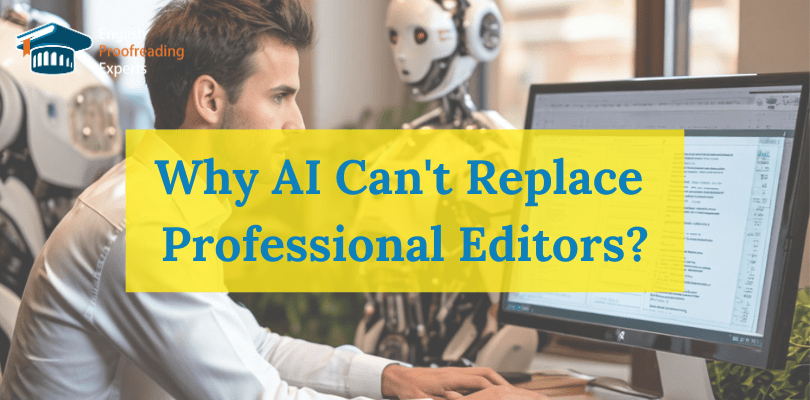The Human Touch in Editing: Why AI Can’t Replace Professional Editors?
- March 17, 2025
- Posted by: Yury Subachev, PhD
- Categories: For young scientists, Paper writing
-
Post Views: 296

In today’s digital age, artificial intelligence (AI) has become an integral part of many industries, including writing and editing. However, when it comes to refining and perfecting written content, the human touch remains irreplaceable. In this article, we explore why professional editors are essential, the limitations of AI tools, and how human expertise can elevate your writing to the highest standards.
AI tools have made significant strides in recent years, offering features like grammar checks, spelling corrections, and even style suggestions. However, these tools are inherently limited. They lack the ability to fully grasp context, nuance, and tone, which are crucial elements in any well-written document. While AI can catch basic errors, it often fails to understand the deeper meaning behind the text, leading to suggestions that may not align with the author’s intent.
Moreover, AI tools are prone to generating both false positives and false negatives. For instance, they may incorrectly flag human-written text as AI-generated or fail to detect AI-written content altogether. This unreliability makes AI tools unsuitable for making substantive changes to your text, especially when the goal is to preserve your unique voice and message.
2. The Role of Human Editors.
Professional editors bring a level of expertise and critical thinking that AI cannot replicate. They are trained to understand the subtleties of language, ensuring that your document meets both professional and academic standards. Unlike AI, human editors can detect and correct issues related to clarity, coherence, and adherence to style guides, which are essential for producing high-quality content.
Human editors also excel at “humanising” text. This process involves refining the language, tone, and clarity of your work to make it sound natural and authentic. By removing tell-tale signs of AI-generated content—such as wordiness, repetition, and monotony—editors ensure that your writing resonates with human readers.
3. How Professional Editors Improve Your Writing.
Professional editing services offer a comprehensive approach to improving your writing. Here are some key areas where editors can make a significant impact:
1. Spelling, Grammar, and Punctuation
Editors meticulously proofread your text to eliminate typographical and grammatical errors, ensuring that your document is polished and professional.
2. Academic Style, Tone, and Register
Editors tailor your writing to fit the appropriate style, tone, and register, whether it’s for an academic paper, business report, or creative piece.
3. Clarity and Flow
Editors enhance the readability of your text by improving sentence structure, eliminating awkward phrasing, and ensuring that your ideas flow logically.
4. Wordiness and Redundancy
Editors trim unnecessary words and phrases, making your writing more concise and impactful.
5. Formatting Guidelines
Editors ensure that your document adheres to specific formatting guidelines, such as APA, MLA, Chicago, Harvard, IEEE, or OSCOLA, depending on your requirements.
4. The Irreplaceable Value of Human Editors.
While AI tools can be useful for catching basic errors, they are no substitute for the expertise and critical thinking of professional editors. Human editors bring a level of understanding and refinement that AI simply cannot match, ensuring that your writing is clear, coherent, and authentic. Whether you’re looking to improve the readability of your text, adhere to specific style guidelines, or simply make your writing sound more human, professional editing services offer the best solution.
In a world increasingly dominated by technology, the human touch in editing remains invaluable. By choosing professional editors, you can be confident that your writing will meet the highest standards of quality and professionalism.
How useful was this post?
Click on a star to rate it!
Average rating 5 / 5. Vote count: 12
No votes so far! Be the first to rate this post.
